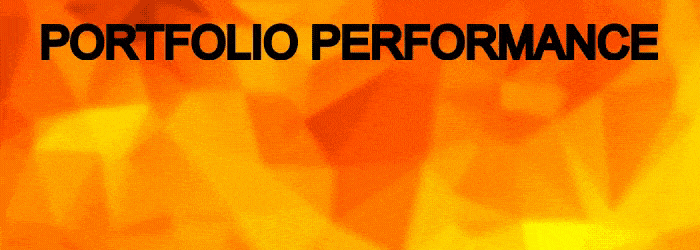Align Your Financial Success with Ultra-High-Net-Worth Wealth Management Professionals
Disturbing Reasons Why Prominent Ultra High-Net-Worth Wealth Management Firms May Not Deliver the Investment Performance You Expect
It’s easy to be impressed by headlines boasting billions—or even trillions—in assets under management by the most recognized names in wealth management. However, as you’ll discover below, when exploring ultra-high-net-worth wealth management firms, it may be worth taking a closer look beyond the most well-known brands.

Overview of Ultra-High-Net-Worth Wealth Management Firms:
Here are a few institutions offering services to ultra-high-net-worth individuals and families:
- Goldman Sachs
- JP Morgan
- Northern Trust
- Wells Fargo
- Merrill Lynch
Goldman Sachs
Goldman Sachs Wealth Management operates under the broader Goldman Sachs investment bank. The firm offers digital investing tools, such as its robo-advisor platform Marcus, which caters to investors seeking a more technology-driven approach. For clients with substantial assets, Goldman Sachs provides access to investment advisors who offer portfolio planning, asset allocation, and other financial services.
JP Morgan
Through JP Morgan Private Bank, the firm offers investment management and banking services tailored for wealthy individuals and global enterprises. With a legacy dating back to 1799, JP Morgan manages $3.7 trillion in assets across various asset classes, supported by thousands of advisors in branches worldwide.
Northern Trust
Founded as a bank in 1889 and formally launching its asset management arm in 1971, Northern Trust serves high-net-worth individuals, institutions, and family offices. Based in Chicago, the firm emphasizes technology integration and personalized services, spanning investment planning, trust services, and fiduciary solutions.
Wells Fargo
Wells Fargo Wealth Management offers dedicated advisor relationships for individuals, families, and organizations. The firm incorporates financial planning into broader ESG-focused efforts and reports on initiatives such as renewable energy lending and sustainable investment practices, particularly through its environmental and governance strategies.
Merrill Lynch
Now a part of Bank of America, Merrill Lynch has been providing investment services since its founding in 1914. With over $1 trillion in assets under management, it serves a diverse clientele of individuals and institutions. Merrill advisors are available across thousands of retail locations globally, offering services from retirement planning to portfolio construction.
At Merrill Lynch, wealth management fees reportedly range from approximately 3.1% for accounts under $1 million to around 1.5% for portfolios exceeding $25 million. Merrill Edge, its online division, offers self-directed investment services at discounted rates.
This type of fee structure is publicly available, yet many investors may not look closely at the details. Often, decisions about where to place significant assets are made based on reputation, size, or media presence, without a closer evaluation of underlying fees, investment approaches, or long-term alignment with personal goals.
When exploring investment firms that serve ultra-high-net-worth individuals, it’s worth considering not only the scope of services, but also how well a firm adapts to individual circumstances. Some investors find value in large institutions. Others may seek out firms that offer more specialized, personalized investment management solutions.
To understand your options more clearly, you can review four factors that some investors weigh when evaluating large investment firms. These considerations may include:
- Fee structures across asset tiers
- Portfolio customization
- Accessibility of advisors
- Alignment with long-term planning goals
Want to explore investment firms based on your specific needs and risk preferences?
4 Reasons To Avoid Ultra High Net Worth Wealth Management Firms

1. Large Firms Can Erode Your Growth Through Avoidable Taxes
As Forbes notes, a wealth manager might tout impressive 15% gross returns, but when factoring in management fees, fund expenses, and taxes, those gains could shrink to as little as 3%. These hidden costs can have a significantly detrimental impact on your returns, often eroding far more than investors realize. Rather than merely nibbling at your gains, these fees and taxes can be devastating, slashing them in half or worse. You can dive deeper into this issue by exploring 6 Hidden and Avoidable Investment Costs. For more insights on how such costs affect your portfolio’s performance, check out our comprehensive guide on improving portfolio performance.

Are large ultra-high-net-worth wealth management firms better at minimizing taxes?
In all likelihood, the answer is no. Due to their large, global teams (for example, Morgan Stanley employs 15,500 wealth managers), it’s rare that all wealth managers operate at the high level required to stay on top of evolving tax strategies. The reality is that only a small fraction of these advisors specialize in tax minimization tailored to the unique needs of each client.
Moreover, the larger caseloads in these firms reduce the time each advisor has to focus on your specific situation, leaving you less room for personalized tax strategies. With constant turnover and the inherent challenges of such vast teams, you may find yourself shuffled between advisors, further complicating your experience.
At large firms, the odds of losing money to avoidable costs and taxes are much higher. Protecting your wealth becomes more difficult.

2. The Abundance of Wealth Managers Dilutes the Expertise
Expertise can’t be spread evenly across an entire industry. While top-tier performers in any field can consistently exceed the average, the same principle applies to ultra-high-net-worth wealth management.
At the highest levels, you’ll find elite financial advisors and wealth managers who specialize in crafting sophisticated financial strategies and solutions. These professionals are constantly evolving their approach to wealth management to adapt to global market changes, redefining the industry along the way.
However, beneath these top-tier professionals is a large pool of less experienced wealth managers who follow predetermined scripts, executing tasks based on guidelines set by the industry leaders. While they may be competent, they often lack the expertise needed to provide the customized solutions that high-net-worth individuals deserve.
In large ultra-high-net-worth wealth management firms, you’ll find a few exceptional wealth managers. But with tens of thousands of staff members across the globe, the odds of being paired with one of them are slim. In contrast, at specialized wealth management firms, the expert is often the owner. These individuals are directly involved with each client’s portfolio and don’t delegate work to junior advisors. They build strong personal relationships with clients, knowing not just their financials, but also their personal lives, such as family details and long-term aspirations.

This level of intimate knowledge allows specialized firms to create highly personalized financial plans that are meticulously aligned with each client’s unique needs. By contrast, large firms often provide cookie-cutter solutions that lack the attention to detail required for effective wealth management.
Choosing a financial advisor who is genuinely invested in you and your family leads to a more private, customized approach that can significantly improve your portfolio performance. At large ultra-high-net-worth firms, it’s far more likely that you’ll receive a generic plan, as these firms must constantly hire and train new employees to manage their ever-expanding client base.
In fact, the financial advisory industry now employs more non-owner professionals than owners. ‘Employee advisor’ has become the most common job title at large firms, and many of these advisors are still learning on the job while managing their wealth. At the bigger firms, the chances of working with one of these less experienced advisors are much higher than at specialized firms, where expertise is central to the business.

3. Assets Under Management (AUM) Is a Misleading Indicator
Looking at the assets under management (AUM) to gauge the performance of a wealth management firm can be deceptive. For example, Charles Schwab’s Investor Services saw net revenues increase by 14.6% in 2017 compared to 2016. In contrast, Wells Fargo’s net revenues grew just 4.9% during the same period.
At first glance, you might assume Schwab is outperforming Wells Fargo, but the truth is more complex. According to Investopedia, Schwab’s growth was largely driven by “increases in asset management and administration fees.” In simpler terms, Schwab made more money from fees, but that doesn’t necessarily mean its clients saw a similar increase in returns.

Simply relying on AUM, revenue growth, and other standard financial metrics at ultra-high-net-worth wealth management firms doesn’t provide the full picture of how well the firm is serving its clients.
It’s a straightforward truth: bigger doesn’t always mean better when it comes to protecting your wealth. Revenue growth, while impressive, doesn’t reveal how much of that increase is coming from fees, taxes, or other costs that investors have to pay. If you want to understand this concept more thoroughly, click here to access our detailed guide on high-net-worth investment management, estate, tax, and financial planning strategies designed to help investors achieve financial serenity.

4. Large Firms Have Fewer Specialists
The concept of “one-stop shopping” is a popular approach in many industries, but when it comes to ultra-high-net-worth wealth management, it’s the last thing you should settle for. Why?
As a high-net-worth individual, your financial needs are more complex than most, and you require highly specialized financial advisors who can offer private, bespoke advice and tailored strategies for wealth management. Simply put, your needs demand a level of expertise and customization that larger firms struggle to provide.

When it comes to estate planning, you don’t just need any attorney—you need someone who has handled complex, high-net-worth estates for moguls and celebrities. You need an expert who understands the nuances of legacy planning and works with a select group of clients who require the highest level of attention.
Similarly, you don’t just need any tax accountant; you need a specialist who is often called upon as an expert witness in high-profile cases, one who is too busy for the average client because they work with top-tier individuals like you.
The truth is, elite specialists don’t work at large banks or big ultra-high-net-worth wealth management firms. These experts prefer to operate independently because they can focus on what truly matters—providing tailored, expert-level advice to clients who demand the best.
Big banks and ultra-high-net-worth firms may offer estate planning or tax services, but these services rarely come with the depth of expertise that specialized firms can provide. At these large firms, you’ll never find the full complement of elite advisors working together.
Instead, by seeking smaller, specialized firms, you gain access to the best of the best—experts who are committed to serving your needs and helping you achieve your financial goals with precision.
Wouldn’t you prefer to work with a financial advisor who has your family’s best interests at heart?
